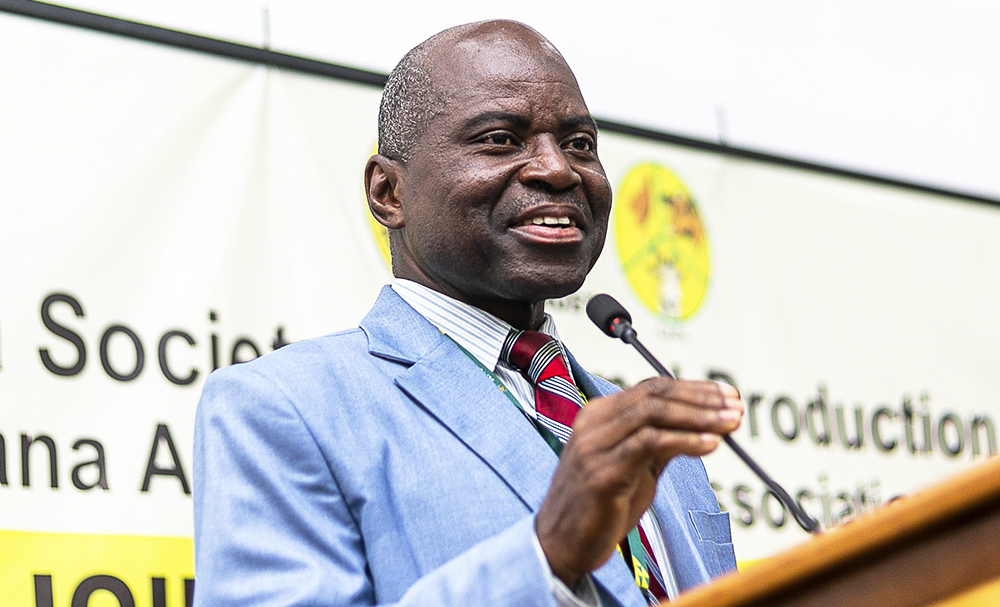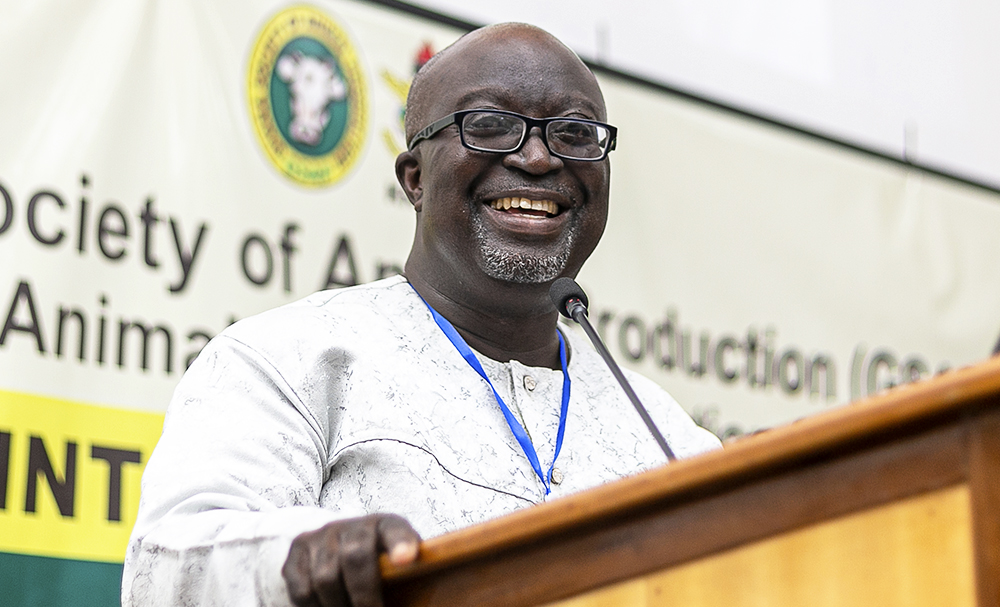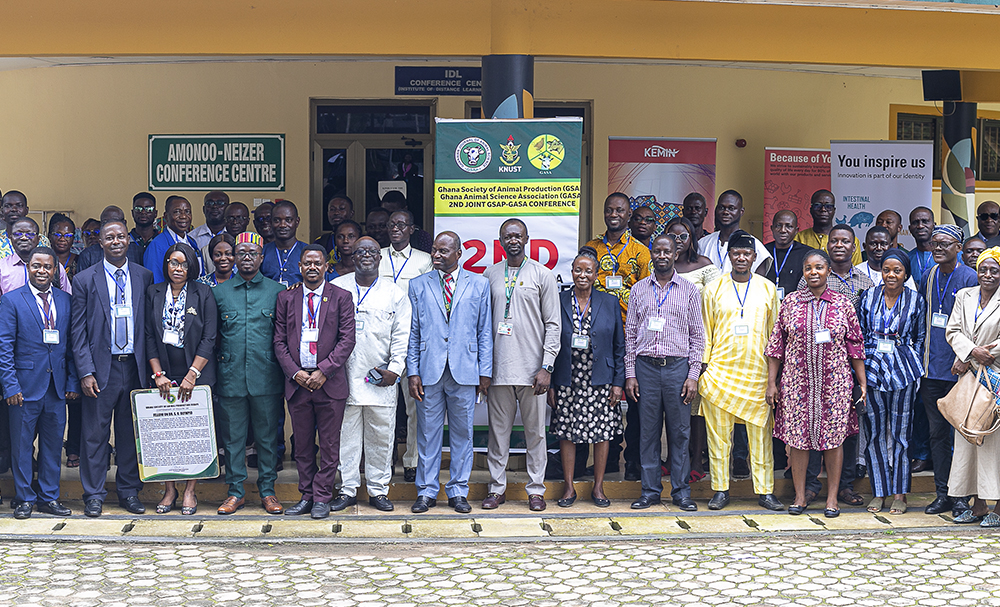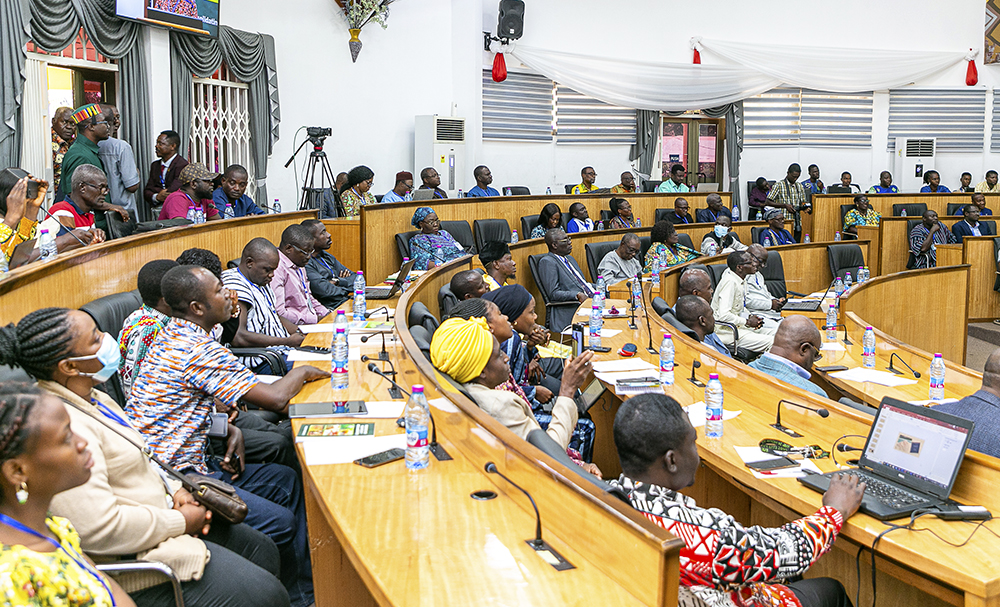The Department of Animal Science at the Kwame Nkrumah University of Science and Technology (KNUST), Kumasi has hosted the 2nd Joint Ghana Society of Animal Production and Ghana Animal Science Association (GSAP-GASA) Conference on the theme ‘‘Consolidating the gains made in climate change resilient agriculture for sustainable animal production in the 21st century’’ from 28th August to 1st September 2023.
The Conference provides a platform for the exchange of innovative ideas, breakthrough discoveries, and profound insights that hold the potential to revolutionise understanding of the animal production industry and fully exploit for business gains. The pre-conference provided a session to give practical knowledge to farmers and stakeholders in the industry on relevant topics such as Managing breeding stock for improved performance, Biosecurity and implications on vaccinations, principles in poultry production, and maximising profit in big production.

In his welcome address, the Chairperson for the Conference and Dean of the Faculty of Agriculture, Professor Enoch Adjei Osekre, noted that the Conference is a testament of KNUST’s commitment to advancing Science and Technology through research, teaching, entrepreneurial training, and dissemination of knowledge in sustainable agriculture globally. He added that over the last decade, KNUST has invested in climate-controlled facilities (greenhouses) to support climate-smart research activities.
Professor Osekre mentioned that the theme of the Conference, reflects collective dedication to addressing the pressing challenges and exploring the boundless opportunities within the animal industry. He called for the exploration of new paradigms and the redefinition of the boundaries of animal science.

In his keynote address on the ‘Status of the Livestock industry in Ghana,’ the Director of Animal Production Directorate at the Ministry of Food and Agriculture, Mr. Jonas Asare Berchie, highlighted the new focus on improving value chain production of crops and poultry under the Planting for Food and Jobs phase 2 (PFJ-2). He mentioned that Ghana heavily depends on poultry imports to meet demand, despite its potential for self-sufficiency, thus, the need to urgently revive the industry, as imports in 2021 exceeded $400,000,000. He emphasised that the PFJ-2 aims to achieve 89.7% self-sufficiency in poultry by 2027, building on private sector investments.
Mr. Berchie outlined challenges in the poultry industry, including high feed costs due to expensive maize and soybean meal, unregulated hatchery operations, inadequate production systems, and poor infrastructure. To address these challenges, he added that the government has proposed several interventions, such as expanding processing facilities, ensuring affordable inputs for farmers, promoting market linkages, raising public awareness, implementing import permits, and supporting research to improve poultry breeds.
The Director stressed the significance of the livestock sub-sector in supporting millions of farmer households in Ghana and highlighted the need to protect their livelihoods. He called for urgent action, climate resilience, and the importance of safeguarding farmer livelihoods in the pursuit of a sustainable and thriving livestock sub-sector.
Mr. Jonas Asare Berchie represented the Honourable Minister Food and Agriculture, Dr. Bryan Acheampong.
Fraternal messages were received from representatives of the Ghana National Poultry Farmers Association (GNFPA), Ghana Veterinary Medicine Association (GVMA), and the Nigerian Institute of Animal Science (NIAS).

Participants were drawn from the Department of Animal Science, KNUST, University of Ghana, University of Cape Coast, University for Energy and Natural Resources, University for Development Studies, Akenten Appiah-Menka University of Skills Training and Entrepreneurial Development, as well as attendees from Nigeria and Tanzania.
The week-long Conference also provided the participants time to interact with the Editorial Board of the Ghanaian Journal of Animal Science.

















